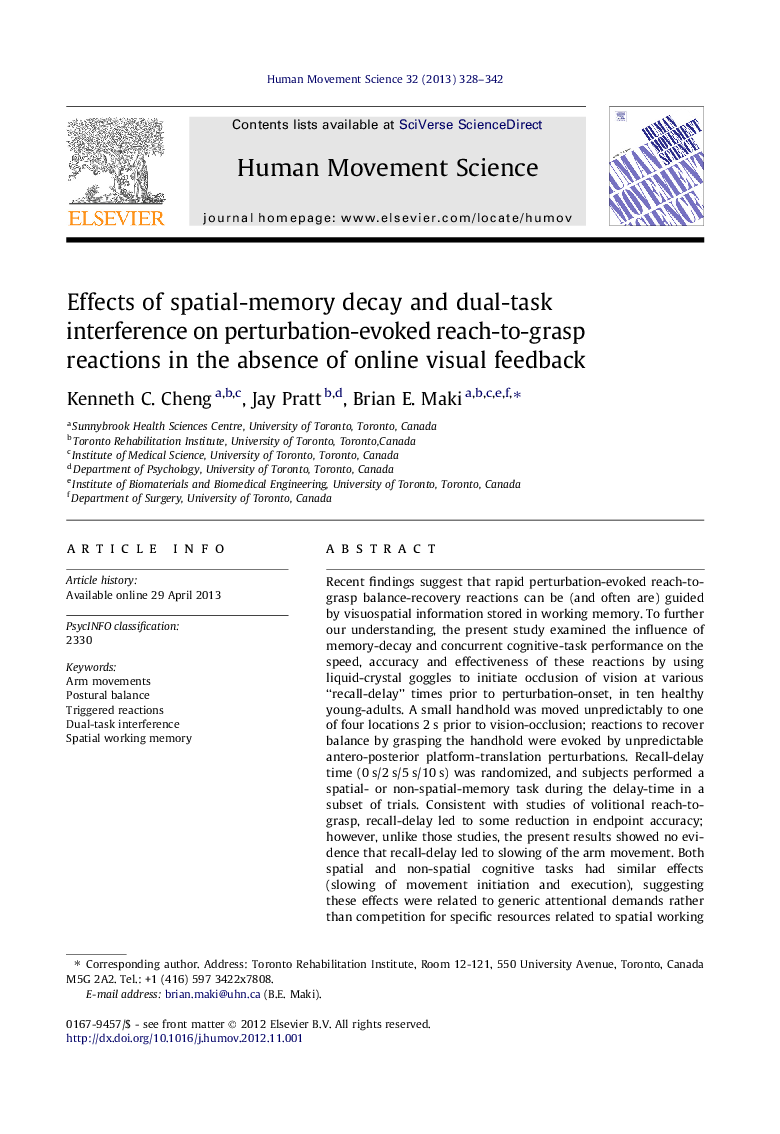| Article ID | Journal | Published Year | Pages | File Type |
|---|---|---|---|---|
| 928432 | Human Movement Science | 2013 | 15 Pages |
Recent findings suggest that rapid perturbation-evoked reach-to-grasp balance-recovery reactions can be (and often are) guided by visuospatial information stored in working memory. To further our understanding, the present study examined the influence of memory-decay and concurrent cognitive-task performance on the speed, accuracy and effectiveness of these reactions by using liquid-crystal goggles to initiate occlusion of vision at various “recall-delay” times prior to perturbation-onset, in ten healthy young-adults. A small handhold was moved unpredictably to one of four locations 2 s prior to vision-occlusion; reactions to recover balance by grasping the handhold were evoked by unpredictable antero-posterior platform-translation perturbations. Recall-delay time (0 s/2 s/5 s/10 s) was randomized, and subjects performed a spatial- or non-spatial-memory task during the delay-time in a subset of trials. Consistent with studies of volitional reach-to-grasp, recall-delay led to some reduction in endpoint accuracy; however, unlike those studies, the present results showed no evidence that recall-delay led to slowing of the arm movement. Both spatial and non-spatial cognitive tasks had similar effects (slowing of movement initiation and execution), suggesting these effects were related to generic attentional demands rather than competition for specific resources related to spatial working memory. Further work is needed to determine effects of age-related impairments in visuospatial memory and attentional capacity.
► Examined effects of memory-decay and dual-task on perturbation-evoked grasping. ► Recall-delay led to reduction in endpoint accuracy, without slowing grasp timing. ► Spatial and non-spatial cognitive tasks led to similar slowing of grasp reactions.
